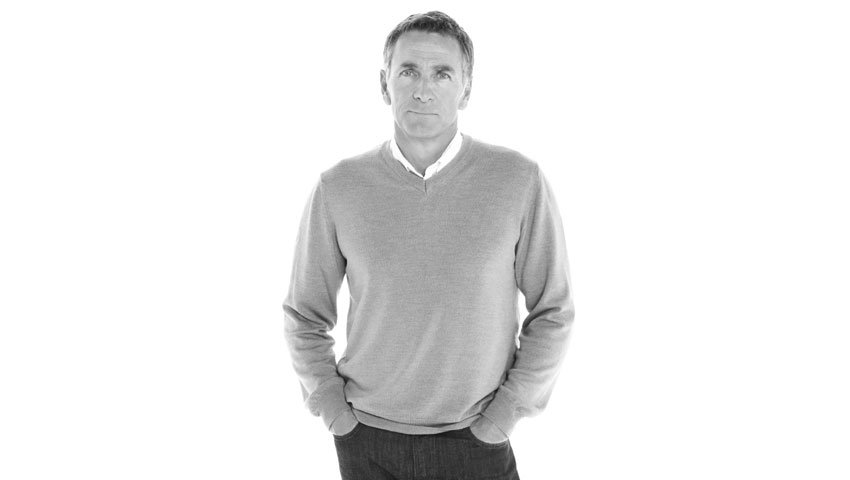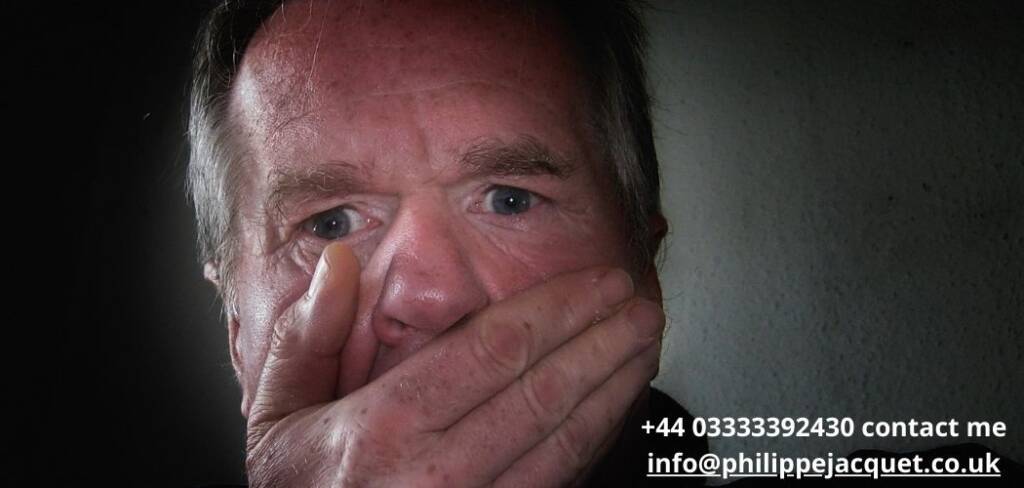MIDLIFE CRISIS, PSYCHOTHERAPY TREATMENT – PHILIPPE JACQUET & ASSOCIATES, LONDON

Men experience a midlife crisis at an average age of 43.
The modern midlife crisis
A midlife crisis, also known as a midlife crisis, is a very real experience for many people. The issue that makes this transition in life so difficult for some and not for others is not fully understood. Generally researchers and mental health professionals agree that it is a combination of factors including fear of aging, personality type, past anxiety or depression issues, dissatisfaction with some aspect of your personal and professional life as well as thoughts of pending death and decline in functioning in many areas of life that contribute to the issue.
Alors qu’historiquement, le terme était utilisé pour désigner les âges de 40 à 60 ans, il est désormais associé à des changements de comportement à un âge beaucoup plus précoce. Aujourd’hui, si les hommes ont tendance à vivre une crise de la quarantaine, c’est à l’âge moyen de 43 ans, tandis que les femmes déclarent une crise de la quarantaine sont légèrement plus âgées, à 44 ans en moyenne. Beaucoup ont spéculé que ce changement d’âge est dû au fait que les jeunes réussissent à un âge beaucoup plus précoce. Vous n’êtes plus obligé de travailler pendant 30 ans dans une entreprise pour accéder à un poste de direction et, en fait, vous pouvez effectivement atteindre votre statut professionnel le plus élevé entre le début et le milieu de la trentaine. Cela peut donner aux gens le sentiment qu’ils n’ont rien à accomplir dans la vie, donnant ainsi ce sentiment de désir de retrouver la jeunesse et les possibilités perdues.
Triggers midlife crisis
Une crise de la cinquantaine est souvent déclenchée par des changements dramatiques dans le monde. Ces changements peuvent être naturels et inévitables, mais lorsqu’ils se produisent réellement, ils touchent une corde sensible dans l’esprit qui conduit à un changement radical de comportement. Les déclencheurs typiques d’une crise de la quarantaine pour les hommes et les femmes comprennent :
- The "empty nest syndrome" where children leave home for school or work
- Menopause for women or andropause for men
- Dissatisfaction with a career but feeling it is too late to change
- Loss of a job and having to start rebuilding
- Unfulfilled life dreams and desires combined with reaching a key milestone age (40, 45, 50, etc.)
- Death of parents
- Unhappiness in a personal relationship or dissatisfaction with a partner or spouse
- Changes in the body that signal aging such as hair loss, weight gain, change in body shape, loss of muscle tone, etc
Plus une personne subit de déclencheurs ou de facteurs de stress, plus elle est susceptible de vivre une crise de la quarantaine.
Symptoms of midlife crisis
- Major cosmetic surgery to achieve a youthful appearance
- The desire to obtain significant items associated with youth and success (sports cars, designer clothing, expensive jewellery, memberships to exclusive fitness clubs, tattoos, body piercing, motorcycles, etc.)
- Feelings of sadness, loss or hopelessness
- Withdrawing from others
- Abuse of alcohol or drugs
- Ending current relationships and attempts to connect with more youthful partners
- Excessive attention to changes in the body and constantly needing attention and positive comments
- Withdrawal from social situations
Treatment Options
Learning coping skills and making effective lifestyle changes that allow the individual to feel good about themselves as they age is critical in dealing with all aspects of a middle age crisis. The earlier these behavioural and thought changes are addressed the less damage that is done to relationships, professional status and to the family as a whole.

How to manage midlife crisis and find a new start
The midlife crisis is a stage of life that can affect each of us. It is often associated with a moment of profound self-questioning and reflection on past choices, as well as the pursuit of a new beginning. In this article, we will explore the causes of this crisis, how to manage it, and how to turn it into an opportunity for personal growth. Give meaning to your life by enrolling in our support program. Read this article that discusses the meaning of life.
The causes of the midlife crisis
This midlife crisis is often triggered by several factors, including:
- Life Assessment: As we approach middle age, we begin to assess our accomplishments and regrets. This can lead to feelings of dissatisfaction and doubt.
- Physical Changes: Age-related physical transformations can raise concerns about our appearance and health.
- Career Changes: Many people question their careers and seek to give new meaning to their work.
- Relationships: Family and romantic relationships are often at the core of this crisis, with questions about stability and satisfaction.
How to manage the midlife crisis
- Acceptance: Acknowledge that the midlife crisis is a normal stage of life. It is essential to recognise your emotions.
- Self-Reflection: Take time to reflect on your goals, what inspires you, and what you want to achieve.
- Physical and Mental Health: Take care of your physical health by adopting a balanced diet and regular physical activity. Meditation and therapy can also help on the mental aspect.
- Relationships: Invest in your relationships by communicating openly and seeking support if needed.
Turning the midlife crisis into an opportunity
The midlife crisis can be an opportunity for personal growth. It’s the ideal time to explore new interests, resume studies, start a new business, or even rediscover your passion for life. The key is to view this period as a new beginning rather than an end. If you find yourself in this phase of life, remember that you are not alone in experiencing the midlife crisis, and there is a bright future ahead of you. Engaging in sports and bodywork can change your perspective. Read this article discussing Shiatsu.
Reinventing oneself professionally during the midlife crisis
The crucial aspects of this midlife crisis is questioning one’s career. Many people ponder whether they are on the right path or if they should consider a career change. Here are some tips for reinventing yourself professionally:
- Midlife can be the perfect time to acquire new skills. Consider taking courses or obtaining certifications that will help you progress in your current career or explore new opportunities.
- Reconnect with former colleagues, attend professional events, or join online discussion groups. Networking can open unexpected doors for you.
- If you have dreamed to start your own business, midlife can be the opportune moment to take the plunge. Develop a solid business plan and explore the possibilities available to you.

A new vision of life during midlife crisis
The midlife crisis can serve as a catalyst to review your vision of life and priorities. Here’s how :
- Invest time and energy in your relationships to combat the midlife crisis. Strengthen the family and friendships that matter most to you.
- Quickly rediscover your passions during the midlife crisis. Whether it's bodywork, yoga, Shiatsu, music, art, sports, or any other area, midlife is the ideal time to cultivate them.
Take meticulous care of your physical and mental health. Adopt a healthy, clean, and balanced lifestyle. Practice meditation, yoga, or therapy to maintain mental balance. Enroll in the midlife crisis support program at the Philippe Jacquet and Associates office. Don’t wait any longer; start benefiting today from the expertise to end the midlife crisis.
Midlife crisis in men
The midlife crisis, often perceived as a period of emotional upheaval and profound questioning, affects many men at some point in their lives. We will delve into the midlife crisis in men, its causes, manifestations, and strategies for successfully managing it.

What is the midlife crisis in men ?
The midlife crisis is a psychological and emotional phenomenon that typically occurs between the late thirties and mid-fifties. It is often characterized by significant changes in a man’s life, including personal and professional questioning, doubts about past achievements, and concerns about the future.
Symptoms and typical in midlife crisis
During this period, many men may experience:
- Frequent mood swings, including moments of irritability or depression.
- A decrease in self-confidence, especially regarding appearance and performance.
- Questioning the meaning of life, past achievements, and future goals.
5 Helpful tips for managing midlife crisis in men
- Talking about your feelings with close friends or a professional can help alleviate emotional stress.
- Regular physical exercise and a balanced diet can improve mental well-being. Take advantage of this period to reflect on your aspirations and adjust your goals accordingly.
- Cultivate hobbies and interests that bring satisfaction.
- Individual therapy can be beneficial for exploring and resolving underlying issues.
Men midlife crisis
Men midlife crisis is a complex phenomenon that can have a significant impact on their lives. This often-misunderstood period of transition can bring about emotional, professional, and relational challenges. In this article, we will delve into the heart of the male midlife crisis, exploring its causes, symptoms, and providing practical tips for overcoming it.

Understanding the men midlife crisis
The men midlife crisis is a psychological transition that typically occurs between the ages of 40 and 50. It is often characterized by feelings of dissatisfaction, self-doubt, and introspection. Several factors can trigger this crisis, including:
- Men undergo hormonal changes similar to menopause in women, which can affect their mood and well-being.
- Events such as divorce, job loss, or children leaving the nest can trigger profound reflections.
- Social expectations and comparison with others' successes can increase stress.
Common symptoms of midlife crisis
The midlife crisis in men can manifest in various ways, including:
- Irritability, frequent mood swings, or depression.
- Questioning past achievements and future goals.
- Decreased self-confidence, especially regarding appearance and performance.
Practical tips for managing the men midlife crisis
- Share your feelings with a close friend or mental health professional.
- Regular exercise, a balanced diet, and adequate sleep are essential.
- Use this period to reflect on your aspirations and adjust your goals accordingly.
- Cultivate hobbies and interests that bring you satisfaction.
- Individual therapy can help you explore and resolve underlying issues.
What is midlife crisis depression?
The midlife crisis depression is a transitional period that can sometimes trigger episodes of depression. We will delve into the connection between the midlife crisis and depression, as well as strategies for coping with this challenging situation. It is also a phase of self-questioning that typically occurs between 40 and 50 years old. It is a period where many individuals reflect on their lives, choices, and goals. However, for some, this reflection can lead to depressive symptoms.
Signs of midlife crisis depression
Midlife crisis depression can manifest in various ways, including :
- A constant feeling of sadness and despair.
- Loss of interest in activities that were once enjoyed.
- Persistent fatigue and loss of energy.
- Insomnia or hypersomnia.
- Unexplained weight loss or gain.
- Social withdrawal and avoidance of friends and family.
Understanding the report between midlife crisis and depression
Several factors contribute to the link between midlife crisis and depression, including :
- Social expectations and comparison with others of the same age can be overwhelming.
- Job losses, divorces, or health issues can trigger depressive episodes.
- Hormonal fluctuations can influence mood.
Strategy for coping with this midlife crisis
Seek professional help: Consulting a psychologist or psychiatrist can assist you in managing depression.
- Share your feelings with trusted loved ones.
- Regular exercise, a balanced diet, and sufficient sleep are essential for maintaining good mental health.
- Set achievable goals to avoid feeling overwhelmed.
Symptoms of the thirties crisis
The symptoms of the thirties crisis, sometimes referred to as the “quarter-life crisis,” are a period of questioning and uncertainty that typically occurs between 25 and 35 years old. It is often characterized by specific symptoms. In this article, we will explore these symptoms and provide advice on coping with this transitional phase.

Common symptoms of the thirties crisis
Professional dissatisfaction : Many individuals question their career choices and experience dissatisfaction at work.
- Pressure to achieve certain milestones like marriage, homeownership, or starting a family can become overwhelming.
- Doubts about romantic and friendship relationships are common, accompanied by questions about long-term compatibility.
- A decrease in energy and motivation may be felt, affecting the ability to achieve goals.
- Profound questions about personal identity and values arise.
- Uncertainty about the future can lead to anxiety and fear.
Strategy for managing the thirties Crisis
- Understand that change is inevitable, and your journey can be unique.
- Set clear and achievable goals for your future.
- If symptoms persist and significantly affect your well-being, consider consulting a psychologist or counselor.
- Share your feelings with close friends or a support group.
- Prioritize your physical and mental well-being by practicing a healthy diet, exercise, and ensuring good sleep.
Thirties crisis loss of feelings
The thirties crisis loss of feelings is a period of emotional and personal upheaval that can impact a person’s romantic life. In this article, we explore the theme of the loss of feelings during this phase of life and offer solutions to cope with it.
Loss of feelings a common challenge in the thirties crisis
During the thirties crisis, it is not uncommon to experience a loss of feelings towards one’s partner or relationship. This can manifest as a sudden lack of interest, emotional distance, or even doubts about the relationship. Several factors can contribute to this loss of feelings, including stress, hormonal changes, questioning life choices, and the desire to redefine priorities.
Thirties crisis solutions for dealing with the Loss of Feelings
Honest communication with your partner is crucial. Share your feelings and concerns in a respectful manner.
- A professional can help you understand underlying issues and find solutions.
- Give yourself time to reflect on your personal needs and desires.
- Engage in new and exciting activities to reignite the spark.
- Identify factors that contributed to the loss of feelings and work on them.
- Accept that relationships evolve over time, and that may involve ups and downs.
Managing the thirties crisis with help of a life coach
The thirties crisis is a transitional period that can be filled with anxiety and self-reflection. Many individuals seek to overcome this phase of their lives by engaging a life coach. In this article, we explore how a life coach can assist you in navigating through the midlife crisis.
Understanding the thirties crisis
The thirties crisis is often characterized by questioning the meaning of life, doubts about career choices, health concerns, and changes in relationships. These challenges can be overwhelming, but they also offer the opportunity for significant personal growth.
The Role of a life coach during the thirties crisis
A life coach is a professional who guides you to achieve your personal and professional goals. During the thirties crisis, a life coach can play a crucial role in helping you :
- A coach helps you clarify what truly matters to you at this stage of your life.
- By working with a coach, you can define clear and achievable goals for your future.
- Self-confidence may be tested during this period. A coach helps you develop strong confidence in your abilities.
- The thirties crisis can be stressful. A coach can teach you stress management techniques.
- Whether in your career, relationships, or personal projects, a coach helps you make informed decisions.
- Finding a balance between your professional and personal responsibilities is essential. A coach helps you create that balance.
Men midlife crisis symtoms and solutions
The midlife crisis, a time of questioning and transition, can significantly impact men. Common symptoms of this crisis generally include :
- Increased anxiety
- A sense of loss of youth
- Questioning the meaning of life and relationships
- Mood swings
Men may feel the need to reassess their life and achievements. To overcome the midlife crisis, it’s crucial to understand the symptoms and explore solutions. This may involve seeking professional guidance, improving mental health through meditation or therapy, and redefining life goals.

It’s important to remember that the midlife crisis is not inevitable but rather an opportunity for personal growth. By acknowledging the symptoms and seeking solutions, men can navigate this period successfully and emerge stronger and more fulfilled. Find your treatment solution at Philippe Jacquet and Associates.
Understanding the symptoms of midlife crisis in men
To comprehend this midlife crisis in men, it’s important to recognize it as a transitional period marked by specific symptoms. During this time, men may experience :
- Increased anxiety about aging
- Doubts about their achievements and satisfaction in life
- Reflections on their personal relationships
Common symptoms of the male midlife crisis include a search for meaning, heightened concern about their appearance, mood swings, and sometimes impulsive decisions. To gain a deeper understanding, it’s crucial to accept that the midlife crisis is a normal experience. It is recommended to explore solutions such as:
- Therapy
- Meditation
- Redefining life goals
Opening up communication with loved ones. By understanding the symptoms and adopting coping strategies, men can navigate this stage in a constructive and positive manner.
Signs of midlife crisis in men - Symptoms to recognize
This crisis may come with recognizable signs and symptoms in men. It’s essential to know how to identify these indicators to better understand this transitional phase. Common signs of the male midlife crisis include :
- Doubts about one's life and achievements
- Increased anxiety related to aging
- Questioning personal relationships
- A search for meaning in life
Additionally, men in midlife crisis may exhibit sudden mood swings, fluctuations in libido, and sometimes impulsive behaviors. Acknowledging these signs is undoubtedly the first step in managing them. It’s also crucial to discuss them with mental health specialist Philippe Jacquet to obtain adequate support. By understanding these symptoms, men can approach this transitional period with confidence and resilience.
Practical tips for managing midlife crisis in men symptoms
It can be a period of emotional upheaval and questioning. To manage these symptoms and move forward positively, here are some practical tips :
- Accept that this crisis is a normal phase of life
- Talk to friends, your partner, or a mental health professional. Expressing emotions can be helpful
- Set new personal or professional goals to give meaning to your life
- Regular physical exercise, a balanced diet, and sufficient sleep are essential for your well-being
- Explore new hobbies or leisure activities to broaden your horizons
- Individual or couples therapy can help you better understand and overcome your feelings
- Meditate and practice mindfulness: These techniques can reduce stress and anxiety
- The transition may take time. Be compassionate towards yourself
By following these tips, you can manage the midlife crisis more constructively and find a new balance in your life.
Common symptoms of midlife crisis in men
Midlife crisis in men is a transitional period marked by emotional and physical symptoms. Here are common symptoms that men may face :
- Evaluating one's career, love life, and achievements can lead to doubts
- Frequent mood swings and moments of unexplained sadness are common.
- Sleep issues: Insomnia or changes in sleep patterns are possible.
- Changes in diet, exercise, and other lifestyle habits may occur
- Uncertainty about the future can cause anxiety
- Concerns related to physical appearance may arise
- Some men may seek new experiences or adventures
- Moderate depression may manifest
- Some individuals may prefer isolation
It is essential to seek emotional, professional, or medical support if these symptoms significantly affect the quality of life. Contact specialist Philippe Jacquet today.
Overcoming midlife crisis in men
Midlife crisis in men is a life stage that can be complex to detect and overcome. Here are some tips to face it :
- Pay attention to mood changes, doubts about your achievements, and the search for meaning in life. These are common indicators.
- It is normal to feel anxiety and confusion. Acceptance of these emotions is the first step to overcoming them
- Share your feelings with friends, a partner, or a mental health professional. Communication can provide relief
- Set new personal or professional goals to give meaning to your life
- Exercise, a balanced diet, and meditation can improve your mental well-being
- It's the perfect time to discover new activities that passion you
- If the crisis becomes overwhelming, a therapist can provide valuable support
The key is to recognize that midlife crisis is a period of change and growth. By adopting positive strategies, it can become an opportunity for a better life.
7 signs to recognize in midlife crisis in men
Here are the 7 most common signs to watch out for :
- Self-questioning: Men may start questioning their achievements, goals, and satisfaction in life
- Mood swings: Frequent mood swings, episodes of sadness, or unexplained irritability may occur
- Some men may engage in impulsive behaviors, such as excessive spending, extramarital affairs, or hasty career decisions
- The tendency to socially isolate may increase. Men may withdraw from friends and family
- A decrease in interest in intimate relationships can be a symptom
- Concerns about physical appearance: Increased concerns about their appearance and aging may arise
- Search for meaning: Men may express the need to find a deeper meaning in their life
These warning signs should not be ignored. Open communication, social support, and, if necessary, consultation with a mental health professional can help navigate this period in a healthier way.
Mental Health during the midlife crisis in men
The midlife crisis in men can have a significant impact on their mental health. This period of transition, marked by personal, professional, and family changes, can trigger various mental health issues. Here is an overview of the impact on men’s mental health during the midlife crisis :
- Men may experience a sense of loss or disappointment related to unmet goals, triggering depression
- Concerns about the future, health, and aging can lead to anxiety
- Work, financial, and family pressures can increase stress levels
- Some men may socially withdraw, feeling lonely and unable to share their concerns
- Family and marital conflicts may arise as men go through this phase
- Self-esteem can be shaken, questioning personal worth
- Some men may engage in risky behaviors such as excessive alcohol consumption or seeking extramarital adventures
Specialist in midlife crisis for men and women
The midlife crisis is a period of emotional and personal upheaval that affects both men and women. Philippe Jacquet is a renowned specialist in treating this crisis, offering a compassionate and expert approach to help individuals overcome this stage in their lives.

Why you must choose Philippe Jacquet ?
- With numerous years of experience, Mr. Jacquet understands the complexities of the midlife crisis
- Every individual goes through this phase differently. Mr. Jacquet's treatment is tailored to your unique needs
- You won't be alone in this journey. Mr. Jacquet provides ongoing support to promote your recovery
- Proven results: Mr. Jacquet's treatment methods have helped many individuals overcome their midlife crisis and regain balance
- Your privacy is respected at all times
If you or a loved one is going through the midlife crisis, don’t go through it alone. Contact Philippe Jacquet for the support you need to regain emotional and psychological well-being.
Women midlife crisis
- Understanding women midlife crisis
Understanding women midlife crisis is crucial for fostering empathy and support during this transformative phase. Often misunderstood, this period brings about a range of emotional and psychological changes. Women may grapple with questions about identity, purpose, and fulfillment.
- Guide to thriving through women midlife crisis transitions
A comprehensive guide to thriving through women midlife crisis transitions is an invaluable resource. It emphasizes embracing change, exploring new opportunities, and setting positive goals. Providing practical advice on maintaining well-being, relationships, and professional pursuits, this guide empowers women to navigate their midlife transitions with confidence and resilience.
- Overcoming women midlife crisis
Overcoming women midlife crisis involves recognizing the signs and taking proactive steps towards positive change. Addressing self-doubt, reassessing priorities, and seeking support from friends, family, or professionals are essential components. This article explores strategies for overcoming the challenges women may face during this transformative period.
- Exploring emotional resilience in women midlife Crisis
Exploring emotional resilience in women’s midlife crisis is key to fostering inner strength and adaptability. This article delves into the emotional aspects of the midlife journey, highlighting coping mechanisms, mindfulness practices, and self-discovery. Understanding and building emotional resilience is crucial for navigating the complexities of this transformative phase.
- Emotional wellness in women midlife crisis
Prioritizing emotional wellness in women’s midlife crisis is essential for overall well-being. This article discusses the significance of self-care, emotional self-awareness, and seeking professional help when needed. Focusing on emotional wellness empowers women to proactively manage stressors and challenges during this transformative phase.
Strategy for empowering women midlife crisis transitions
Empowering women during midlife crisis transitions involves strategic planning and positive mindset shifts. This article outlines practical strategies, including setting achievable goals, cultivating a support network, and exploring new opportunities. Empowerment lies in embracing change and viewing the midlife crisis as a catalyst for personal growth.
8 strategy for empowering women midlife crisis
- Encourage women to engage in self-reflection and mindfulness practices
- Breaking down larger objectives into smaller, manageable tasks can make the midlife crisis transition more approachable and successful
- She must be encourage to connect with friends, family, or support groups. Sharing experiences and seeking advice can provide emotional support during challenging times
- Promote a mindset of continuous learning. Encourage women to explore new skills, hobbies, or educational pursuits
- Regular exercise, a balanced diet, and sufficient sleep contribute to overall well-being, providing the energy needed to navigate midlife transitions
- Empower women to view change as an opportunity for growth. Instead of resisting change, encourage them to embrace it with an open mind
- Whether through therapy, counseling, or coaching, professional guidance can offer personalized strategies for coping with the challenges of midlife transitions.
- Empower women to take control of their financial well-being
Philippe Jacquet & associés
- +44 03333392430 – Call me
- philippejacquet@rocketmail.com
- Contact form

